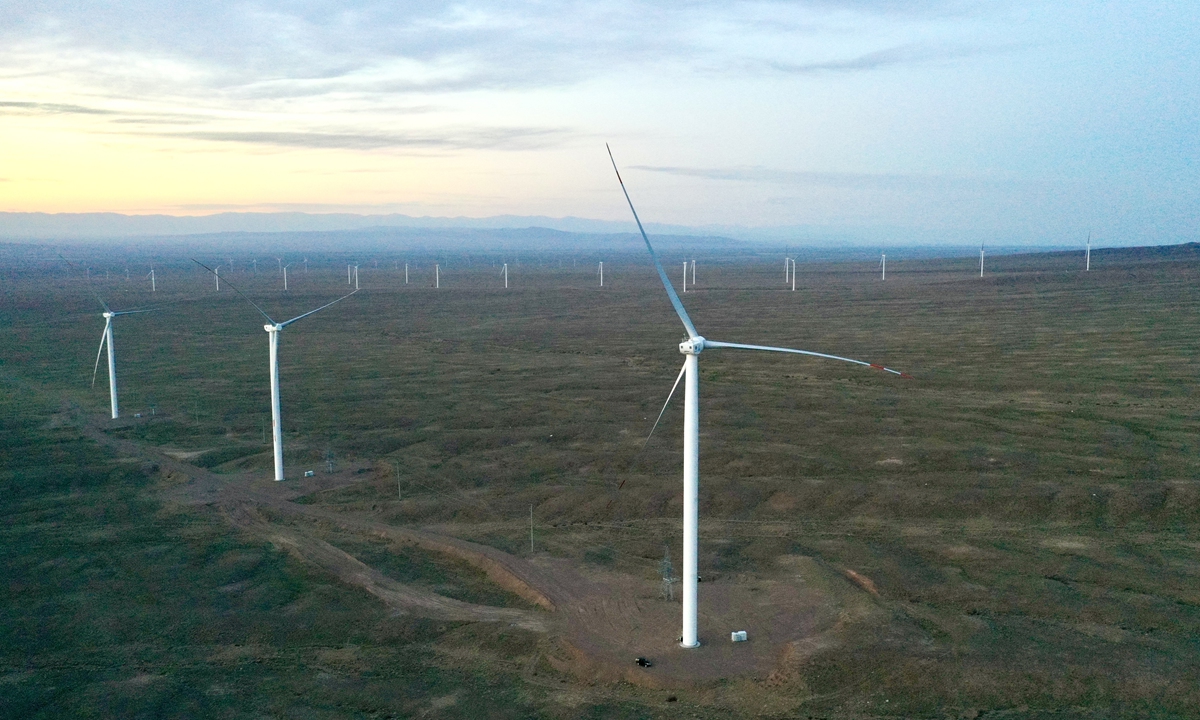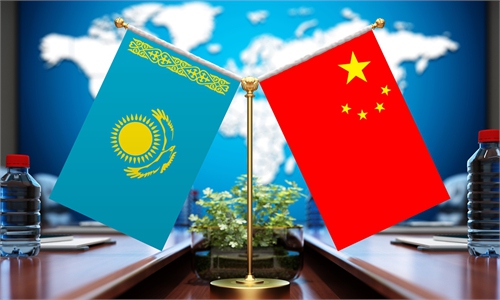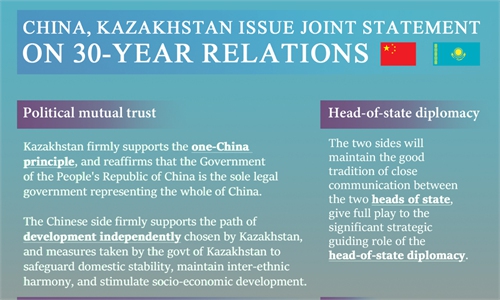Chinese firms upbeat on trade with Kazakhstan, expect new high this year amid closer ties
Bilateral trade set to hit new high amid closer ties: industry official

Shelek wind farm, the first new energy project jointly built by China and Kazakhstan with a generating capacity of 60 megawatts, starts operation on September 13, 2022. Photo: Courtesy of Chengdu Engineering Corporation Limited.
After Chinese President Xi Jinping paid a state visit to Kazakhstan, Chinese businesses are showing great optimism about bilateral trade between China and Kazakhstan, which is expected to hit a new high this year, as both sides cultivate new sources of growth, a trade promotion official and some Chinese firms said on Thursday.
During the visit, Xi stressed that China-Kazakhstan cooperation enjoys a solid foundation, huge potential and broad prospects and called for efforts to bring bilateral cooperation to a new scale and new level, the Xinhua News Agency reported on Wednesday.
The important visit injected fresh optimism among businesses about closer cooperation between China and Kazakhstan that will generate more opportunities.
The sources of growth are to be cultivated in areas ranging from energy to agriculture under the Belt and Road Initiative (BRI), said Chen Hongqiang, Chinese chief representative of the China Council for the Promotion of International Trade in Kazakhstan.
Chen told the Global Times on Thursday that given the momentum, China-Kazakhstan bilateral trade may reach the historic $30-billion mark this year.
According to Chen, some major energy and manufacturing projects, with the participation of Chinese companies, are ready to start production, injecting new momentum into the region's economic growth.
For example, the Zhanatas 100-megawatt wind power plant in Kazakhstan, which has the largest installed capacity of any project of its kind in Central Asia, is basically complete and ready to be put into production, Chen said.
The project under the BRI can generate about 350 million kilowatt hours per year, which can save about 110,000 tons of standard coal per year compared with thermal power generation with the same capacity.
The wind farm has important strategic significance for improving the uneven supply and demand of electricity in the north and south of the country, according to media reports.
Other projects such as the first 500,000-ton large-scale chemical project and the first polyolefin project in Kazakhstan developed by China National Chemical Engineering Corp have also been basically completed and are expected to be put into production this year, according to Chen.
The polyolefin project will fill the gap in the country's polyolefin sector and prompt an industrial structure upgrading for the country, according to earlier media reports.
Other cooperation such as wind and solar projects, artificial intelligence and e-commerce are also being promoted in Kazakhstan, as the country is going digital and getting greener, while Chinese companies have the technology and production capacity to match its industrial transformation.
Zhengzhou Yutong Bus Co (Yutong) is an example of how the Chinese production capacity is being better integrated in the region's industry development.
Entering Kazakhstan in 2005, the company has now built eight service stations and one auto parts warehouse, while forming a transportation service and training network covering all major cities of the country, Yutong told the Global Times on Thursday.
Every year, Yutong provides convenient transportation for more than 2 million people in Kazakhstan and jobs for more than 5,000 people, the company said.
Buoyed by mutual trust at the political level and high complementarity, bilateral trade and investment remain resilient, despite rising global challenges and uncertainties.
In 2021, bilateral trade reached $25.25 billion, a year-on-year increase of 17.6 percent, data from China's General Administration of Customs showed.
Kazakhstan's role as a key transportation hub has been highlighted as the number and routes of China-Europe freight trains passing through the country have increased year by year, with more than 90 percent of the cross-border freight trains now passing through Kazakhstan.
"[Previously] there were not many Chinese investors who were interested in the Central Asian country. They were mostly interested in Europe, but things changed, as more people see the vast opportunities in the region," Chen said.
China's cooperation list in Kazakhstan includes 52 projects worth a total of more than $21.2 billion, and more cooperation is expected.
"We receive many inquiries from Chinese business groups and individuals about future investment in Kazakhstan every day," Chen said.
Chen and his colleague have scrambled to organize more meetings to better bridge connectivity between companies from both countries.



